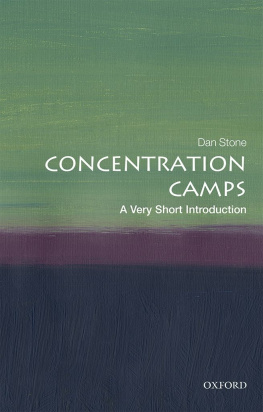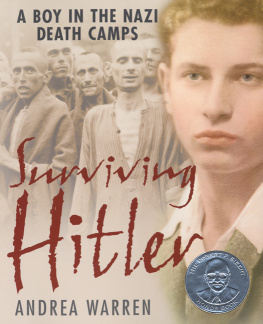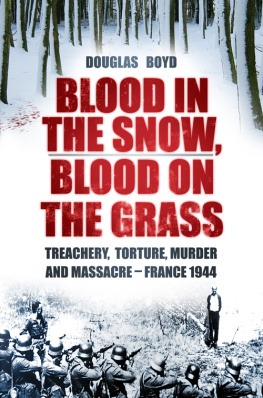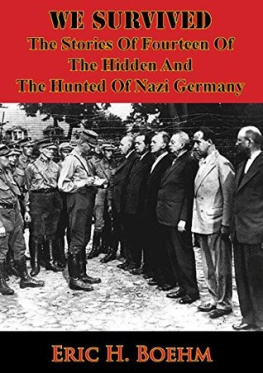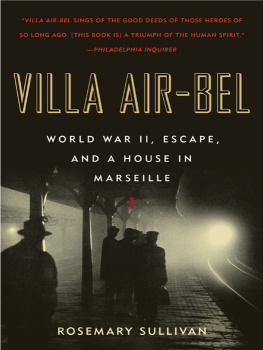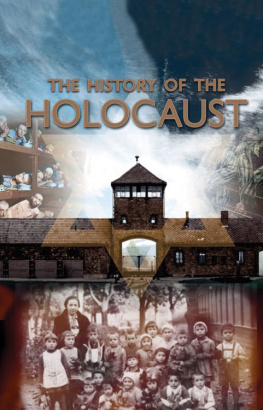ASSIGNMENT:
RESCUE
BY VARIAN FRY
with an introduction
by Dr. Albert O. Hirschman
Interior photographs courtesy of the Varian Fry Papers, Rare Book and Manuscript Library, Columbia University.
Copyright 1945 by Varian Fry. Copyright 1968 by Annette R. Fry.
All rights reserved, including the right of reproduction in whole or part in any form. For information, address Sanford J. Greenburger Associates, 55 Fifth Avenue, 15th Floor, New York, New York 10003.
eISBN 978-0-7867-5522-6
Distributed by Argo Navis Author Services
Contents
As I return in my mind to Varian Fry and to the Marseilles days from July to December 1940 when I worked for him, I am struck by how sharply he and those faraway events stand out in my memory. One reason is, of course, the story itself, so vividly told here. Written down in its essentials as soon as Fry returned from France to the United States in 1941, it retains the flavor of immediate reporting. To the readers of this book it will be obvious that there was nothing routine about being associated with Fry and his Centre Amricain de Secours. The work was extraordinarily absorbing and often dangerous and being in danger is always exciting as well as highly memorable.
Moreover, when the story is viewed in its historical context, it looks wholly improbable. It starts in June 1940, when the German Army overran France and thus came to rule most of the European continent, from Poland to the Pyrnes. The newly installed French government under Marshal Ptain had signed an abject armistice with Hitler. Article 19 of that document committed the French government to deliver to the Germans any non-French citizen living on French soil who the Germans happened to request. Even before the Holocaust, the Nazis, once in power, were intent on systematically capturing and murdering their most prominent and hated opponents, Jews and non-Jews. Now they had trapped large numbers of these opponents, who had earlier escaped from Germany, in France. Was it conceivable that a lone American citizen, newly arrived from the United States, with just a list of names in his pocket, would be able to keep Article 19 from being carried out with the utmost vigor and dispatch? The playing field was so uneven as to make the prospect of success seem laughable. Yet, we now know that Fry and his Committee actually saved the lives of some two to three thousand people. So, on looking back, the Fry story almost brings to mind the successful fight of David against Goliath, or the Greek myth that pits crafty Ulysses against the huge Cyclops.
It must not be forgotten, of course, that we experienced serious and tragic failures (all described here): the suicide of Walter Benjamin, the extradition of Breitscheid and Hilferding to the Nazis, the miscarriage of early schemes to evacuate our clients by boat to North Africa. I remember Varians reaction to such setbacks. He went through moments of deep despair, which belied the cool exterior he so cultivated.
In general, Frys personality is another unforgettable part of the story. While it comes through here and there in the book, he was like many authors who believe in concealing their emotions. His was a complex character, thoroughly engaging yet full of contradictions. It was endlessly fascinating to try to figure him out. I still remember how, upon leaving the Committees offices in the evening, with Miriam Davenport or with Hans Sahl, Fry would invariably be our immediate topic of conversation. There was in him a delightful mixture of earnest resolve and of wit, of methodical, almost formal demeanor and of playfulness. His sartorial elegance (his hallmark was a striped dark suit with bow tie), together with his poker face, were tremendous assets to him in dealing with the authorities. The whole operation, from the early days in his room at the Hotel Splendide to the setting up of a well-run regular office with its bureaucratic routine, all of this in the teeth of the French police and, increasingly, as time went on, of the Gestapo, was an act of sheer defiance how did he get away with it for as long as he did?
I should confess here that I and the other Europeans on the Committee occasionally criticized him for being a typical American, an innocent abroad. But we had it all wrong. That seeming innocence turned out to be precisely his strength. Had he known from the outset the odds he was up against, he might never have achieved what he did. And in a way he knew about this hidden strength of his, and enjoyed the part he played; for, in addition to his other qualities, he was an accomplished actor.
For many years after the war, the staggering achievements of Varian Fry were largely unrecognized in his own country. His death in 1967 (he was only fifty-nine) went almost unnoticed, except for close friends and family. Belatedly, he is now honored for what he was: a hero for our time.
DR. ALBERT O. HIRSCHMAN
Princeton, August 1992
GERMAN ARMIES BLITZKRIEG ACROSS MAGINOT LINE. FRENCH ARMY ROUTED. HITLERS TROOPS ENTER PARIS. FRANCE FALLS.
So read the headlines in June of 1940. The fuse had been lighted, and soon the powder keg of Europe would explode into total war. In the United States, the rumblings were only beginning to be heard. Most of us still wanted to think of Hitler as the little man with the funny mustache. But there were those of us who knew differently. Some of us had been in Europe during Hitlers rise to power. We had seen, at first hand, that what Hitler said was quite different from what he did. Behind his good promises he was already scheming to bring the free world to its knees.
In 1935, I had visited Germany and had smelled the air of hatred and oppression Hitler had brought to his country. While in Berlin, I had seen the first great pogrom against the Jews. I saw young Nazi toughs smash up Jewish-owned shops and I watched in horror as they dragged people out into the streets and beat and kicked them. I watched as they drove men and women, cut and bleeding, down the streets, hitting them with clubs, calling them vile names. They knocked down an elderly man and, as he lay on the pavement, the young toughs kicked him in the face again and again.
During this same visit, I talked to a high German official who told me what was in store for all the Jews in Europe. One group in the Nazi party wanted to send them to Palestine or Madagascar. Another group was in favor of exterminating them murdering every Jew in Europe. Hitler sided with this second group, and since no one argued with Hitler, there was no question that, if he won the war, all the Jews in Europe would be put to death.
Now France had fallen. Paris, which for years had been an escape hatch for men and women fleeing for their lives from revolutions, civil wars, military coups, invading armies, and dictators, was no longer safe. Refugees by the thousands hurried to the unoccupied zone in southern France.
Only after it was too late did they realize they were caught in a trap. A new French government was set up at Vichy under Marshal Philippe Ptain. This puppet governmant signed an armistice with Germany. And in this armistice was the hateful Article 19. This article stated that the French government must surrender on demand all refugees from the Greater German Reich. This included not only Germans but Austrians, Czechs, Poles in fact, anyone the Gestapo wanted to get its hands on was menaced by Article 19.




